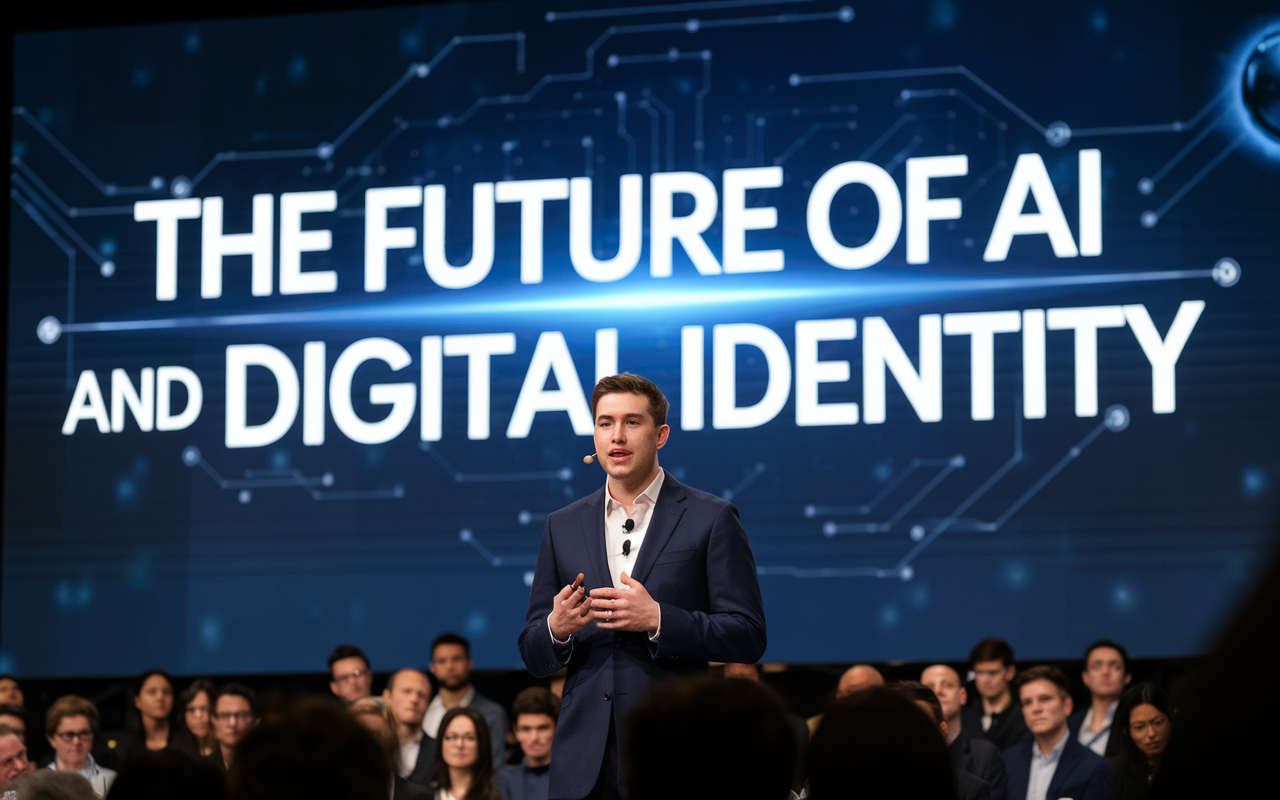Sam Altman’s Vision: Linking AI Agents to Our Digital Identities 🤖🔗
The world of artificial intelligence is evolving at a staggering pace, and perhaps no one embodies this momentum quite like Sam Altman, CEO of OpenAI. Recently, he unveiled plans for a revolutionary project dubbed "World," aiming to connect AI agents to our digital identities. This initiative could reshape how we interact with technology and define our online personas.
The Emergence of Autonomous AI Agents 🚀
In a surprising announcement, Altman introduced "Operator," an AI agent capable of autonomously navigating the web on behalf of users. This leap from static algorithms to dynamic agents marks a significant evolution in how we perceive and utilize AI. However, OpenAI's focus doesn't end with the operator; Altman's other venture, World, is poised to take things further by linking AI agents directly to human identities.
The ‘Proof of Human’ Concept 🔍
Altman’s World project—formerly known as Worldcoin—envisioned a world where distinguishing between humans and AI was increasingly challenging. To counter this, the team intends to develop tools that provide a digital "proof of human" verification. Users will have their irises scanned and receive a unique blockchain identifier, ensuring that their online representatives are indeed authentic human agents.
This is a fascinating step forward. As the digital landscape continues to blur the lines between human interaction and AI functionality, implementing a trusted verification system appears vital.
Controversies and Challenges ⚠️
World has certainly faced its share of controversies—from being banned in certain countries to privacy issues regarding biometric data. However, despite these challenges, Altman insists that linking AI agents to verified human identities is a necessary progression. This could potentially pave the way for a more reliable interaction with AI that users can trust.
Why This Matters to Businesses 💼
The potential implications for businesses are huge! By allowing AI agents to act on users' behalf, companies can automate responses and improve engagement without compromising authenticity. Customers might be more receptive to AI interactions, provided there's transparency about these agents acting on behalf of a real person. As Tiago Sada, Chief Product Officer of World, stated, “Businesses want to sell more. If a delivery app’s sales increase because there’s a bunch of agents responding on behalf of their users, the business is going to be happy about that.”
This creates exciting opportunities for innovation and efficiency within customer service, e-commerce, and beyond. However, there remains the need for companies to maintain their security against potential abuse from malicious actors disguising as legitimate AI agents.
The Future of AI and Digital Identity 🌐
Altman's various initiatives—including ventures in nuclear fusion and longevity research—paint a picture of a future deeply intertwined with AI. These projects feed into one another, suggesting a world where technology, health, and identity are intricately linked.
Ultimately, as we move into 2025 and beyond, the concept of digital identity could evolve into a multifaceted tool for personal and business interactions online. As World steadily develops its tools for AI, it may establish a foundational role in verifying not only human identities but also their AI representatives.
As we continue to navigate the intersection of AI, user identity, and digital interaction, one thing is clear: the future may be less about distinguishing between humans and machines and more about fostering trust in our digital connections.
What are your thoughts on this new frontier? Do you think merging AI with our digital identities is essential, or could it lead to unforeseen complications? Let me know in the comments! 👇
If you enjoyed this post, share it with your friends and follow me for more insights on AI and technology! 🌟
[#AI #DigitalIdentity]

More Stories
Meta’s AR Ambitions and AI Safety: Insights from the Equity Podcast
Insight Partners Data Breach: A Wake-Up Call for Cybersecurity Awareness
Lovable’s Ascendancy: Anton Osika at TechCrunch Disrupt 2025